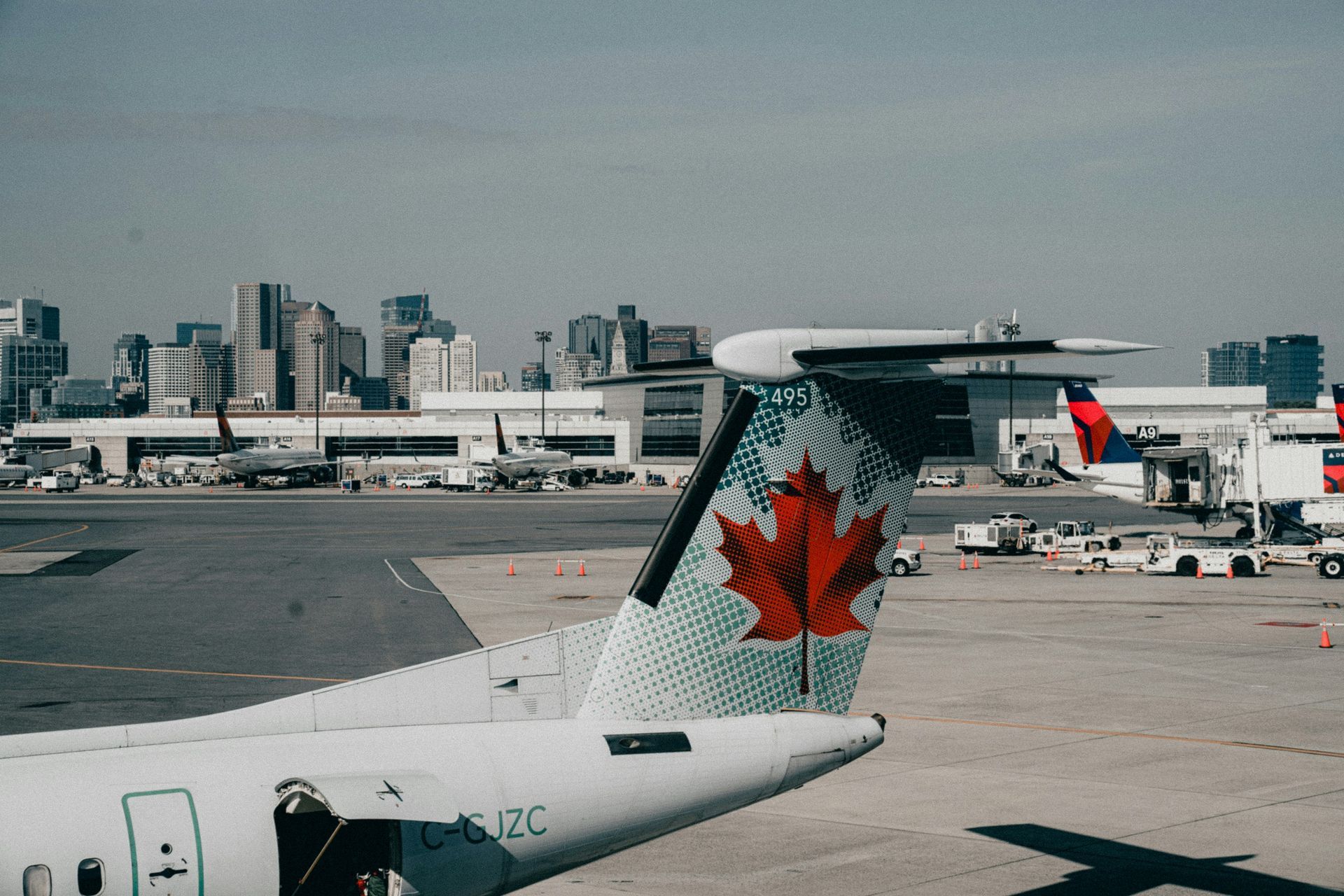Essential Guide to the Post-Graduation Work Permit (PGWP) in Canada
What is a Post-Graduation Work Permit (PGWP)?

A Post-Graduation Work Permit (PGWP) is a special type of work permit in Canada that lets international students stay and work in Canada after you complete your program of studies from an eligible program at a Canadian post-secondary institution.
It gives you the chance to gain valuable Canadian work experience once your studies are finished. This experience can help you develop your career and potentially qualify for permanent residence (PR) through programs like Express Entry or a Provincial Nominee Program (PNP). Many international undergraduate students and graduate students use the this as a stepping stone to transition from the study permit and to build their career and settle in Canada permanently.
The post graduation work permit is an open work permit, which means you don’t need a job offer to apply. Your work permit, once approved, is not tied to any employer or any job. You can work for any employer, in any location, and in most types of jobs. You can change jobs as often as you like without needing to update your permit. You can also work in more than one job at a time, or start your own business; however, self-employment on an open work permit is not recommended if you want to obtain Permanent Residence.
Note that in 2024 & 2025, the IRCC announced several changes related to post grad work permits, including language proficiency requirements for PGWP and field of study requirements for PGWP.
Who is Eligible for a PGWP in Canada?
To qualify for a post graduation work permit, you must meet several program requirements related to your study program, institution, field of study, physical location, and application timing.
Post Graduation Work Permit (PGWP) Eligibility Criteria
✅Program Duration
You completed an academic program of at least 8 months (or 900 hours if in Quebec) at a Designated Learning Institution (DLI) that’s approved by the Canadian government to host international students.
Note that our office never recommends only an 8 month program of studies. If you are going to make the investment to study in Canada, we recommend that you study a minimum of a 2 year program, so that you can obtain a 3 year post graduation work permit. Getting a 1 year PGWP because you studied less than 2 years does not help you in any way - as it's not usually long enough to qualify for PR or even to obtain 1 year of Canadian work experience.
What Is a Designated Learning Institution (DLI)?
Not all schools in Canada are DLIs — and not all DLIs offer programs that make you eligible for a post graduation work permit. So it's important to double-check your school and program before you apply.
You can find the official list of DLIs on the Government of Canada’s website. Each school on the list will show whether its programs are eligible for the PGWP. But remember, just because a school has some programs that are PGWP eligible, that does not mean that all programs are eligible. Ensure you double check with the DLI if the program you are interested in qualifies you for a PGWP, and get the answer in writing before you decide to enroll and apply for the study permit.
What Program Types Qualify for a PGWP?
To be eligible, your program must meet all of the following:
- It was at least 8 months long (or 900 hours in Quebec).
- It's a degree program or led to a diploma or certificate.
- It was completed in-person in Canada (though there are some exceptions for online/hybrid formats).
- It was offered by a PGWP-eligible DLI.
Programs that usually qualify include:
- Public college diplomas and certificates
- Bachelor’s degrees
- Master’s degrees
- PhD programs
- Some professional training programs (e.g. nursing, trades, early childhood education)
✅Full-time student status
You maintained full-time status each semester — part-time is allowed in your final semester and your final transcripts must reflect full-time studies .
✅Apply within 180 days
You must submit your application within 180 days of receiving your final official transcript or your program completion letter. It is highly recommended to apply as soon as you receive written confirmation of program completion.
✅Valid study permit
You need to hold a valid study permit at any point during those 180 days after graduation in order to apply.
Note that your study permit is considered to automatically expire 90 days after you receive notice that you have completed your program, even if the actual expiry date on the permit still shows it is valid.
Special Cases & Online Study
Distance learning, authorized leave, school transfers, and overseas program components have specific rules—check IRCC’s special cases page or consult an immigration professional to get proper advice if you have a complicated study situation and want to be sure that you maintain eligibility for a post graduation work permit.
Courses taken online from inside Canada: these programs count towards PGWP if they were completed before August 31, 2024 under the temporary policy. During the COVID pandemic, IRCC introduced special policies for international students who had to study online due to pandemic era policies. These special policies ended on August 31, 2024. Now, students who attend their program fully online are not eligible if their online courses represent more than 50% of their program.
Courses taken online from outside Canada: You could complete up to 100% of your studies online from outside Canada between March 2020 and August 31, 2022, because of a temporary COVID-19 policy. This temporary policy expired August 31, 2022.
After August 31, 2024: Online studies from outside Canada no longer count towards post graduation work permit eligibility
Accelerated programs: If you finished your program of studies faster than normal, you may still qualify for a full-length PGWP.
Curriculum licensing (public-private partnerships):
Most programs taught at private colleges under contract from public institutions are
not eligible, unless:
- The licensing agreement is within the same province, or
- It involves two provinces working together
Always be careful when planning to study at a private college in Canada, and ensure that you have had an immigration professional explain the implications fully. The rules related to Canadian immigration are vastly different for private colleges than publicly funded institutions. You can spend a lot of money at a private college and then go back home as soon as you graduate, because you have no options to remain in Canada.
Flight school graduates:
You may qualify after studying flight school in Canada, if you have obtained a Canadian commercial pilot license or a job offer as a flight instructor from a DLI
Programs with overseas components:
You may qualify if your Canadian school grants credit for the overseas portion of your study; however, the length of the PGWP will only match the length of time that you studied in Canada.
📌 NEW: Other Eligibility Criteria of PGWP (as of November 1, 2024)
International students applying on or after November 1, 2024, will have different eligibility criteria compared to those who applied before that date.
Starting November 1, 2024, eligible students will be required to take a recognized immigration language test and achieve a minimum of Canadian Language Benchmark level 5 under the new eligibility requirements.
1. Language proficiency requirements
- For bachelor’s, master’s, or PhD programs → CLB 7 in all four skills.
- For other university programs → CLB 7 in all four skills.
- For college/diploma/certificate programs → CLB 5 in all four skills.
Language ability test results must be no more than 2 years old on the date you apply for your PGWP.
Accepted language tests are: CELPIP (General), IELTS (General), PTE (Core) for English, and TEF and TCF for French.
Note: Flight school graduates are exempt from the new language and field-of-study rules.
2. Field-of-study requirement (for study permits applied on or after Nov 1, 2024)
- Bachelor’s/Master’s/PhD → No field restrictions.
- Other university programs → Must be in an eligible field (e.g., STEM, healthcare, trades).
- College/Certificate programs → Must also be in eligible fields.
PGWP Duration: How Long Can You Work in Canada?
If you’re approved for a Post-Graduation Work Permit (PGWP), the length of your work permit depends on the nature and the length your study programs:
PGWP Length for Master’s degree programs:
If you completed a Master's degree in Canada, as of February 15, 2024, you can get a 3-year PGWP validity period even if the study was under 2 years, as long as it was at least 8 months (or 900 hours in Quebec).
- Example: If your Master's degree program was 10 months, your PGWP will be valid for 3 years.
PGWP Length for other programs:
- If you completed a program of studies that took between 8 months to under 2 years, your PGWP will be issued for the same duration of time as you studied.
- Example: If your program was 10 months, your PGWP will be valid for 10 months.
- 2 years or longer: You may get a 3-year PGWP
- Can You Combine Programs for a Longer PGWP?
- Yes — if you completed two or more eligible programs back-to-back (without taking a break), you may qualify for a longer PGWP. The total length of both programs is used to determine how long your PGWP will be.
- You can combine lengths of two back-to-back programs if:
- Each was PGWP-eligible
- Each was 8+ months
- Example: You finish a 1-year diploma program, then immediately start another 1-year certificate at the same or another eligible school. Together, that adds up to 2 years — meaning you may qualify for a 3-year PGWP.
- Note that you can’t get a PGWP if you already had one after completing an earlier program of study.
- You can only obtain one post graduation work permit for your entire life, so it's important not to apply for the PGWP until you are eligible for at least a 3 year duration. Do not apply for a one year PGWP unless you have absolutely no other option.
How Your Passport Affects PGWP Length
Before applying for a PGWP, make sure your passport is valid for the full length of PGWP you’re eligible for. If your passport expiry date is sooner, you’ll only get a PGWP that matches your passport’s expiry date.
In this case, you can renew your passport and apply to extend your PGWP later — but it's best to renew your passport before applying to avoid delays or shorter permit durations, as it helps you avoid putting in a separate application later on.
When and How to Apply for Your PGWP
When to apply for PGWP
You submit your PGWP application within 180 days of receiving your final marks or official transcript from your school.
To be eligible for a PGWP, your must have had a valid study permit at some point during those 180 days.
If your study permit is about to expire and you haven’t received your final grades yet, you can:
- Apply for a study permit extension, or
- Maintain your temporary resident status by applying for a visitor record and change to valid visitor status. This is an inland application to change Terms and Conditions of your stay. It is not the same as applying for a Temporary Resident Visa or TRV. If you do not leave the country and seek to re enter Canada, you do not need a valid temporary resident visa.
If your study permit expires and you didn’t apply for an extension or visitor record, you can still apply for your PGWP if:
- You restore your study permit, and you submit your PGWP application within 90 days of your permit expiring, OR
- You leave Canada and submit your PGWP application from overseas
How to Apply for a PGWP
You submit a PGWP application either from within Canada or from outside the country, as long as you meet the PGWP eligibility criteria.
You must apply for the PGWP online through your IRCC account. Here’s how:
Step-by-Step Guide to Apply for a PGWP:
- Sign in to your IRCC account or create one.
- Select “Apply to come to Canada”.
- Use the eligibility tool to generate your document checklist.
- Complete and upload the required forms.
- Pay the application fee and submit the PGWP application.
Document Checklist for PGWP
Here’s what you’ll need to include in your PGWP application:
- IMM 5710 form (Application to Change Conditions or Extend Stay in Canada – Worker) - for inland applications
- IMM 1295 form (Application for a Work Permit Made Outside of Canada) - for overseas applications
- Copy of your valid passport (all pages with stamps and personal info, ideally your passport is valid for the full length of your PGWP eligibility)
- Study permit (valid at some point within the past 180 days)
- Official transcript
- Program completion letter from your DLI
- Digital photo (passport-style)
- Biometrics receipt (if applicable)
- Starting November 1, 2024, language test results may be required
✅ Tip: Your post graduation work permit (PGWP) will not be issued beyond the expiry of your passport. If your passport is expiring soon, renew it before you apply with your new passport to avoid getting a shorter work permit.
PGWP Fees
- Open Work Permit Holder Fee: $100
- Work Permit Processing Fee: $155
- Biometrics (if required): $85
Total cost: The application fee for the PGWP is $255 CAD, or $340 with biometrics. If you don't pay the biometrics fee up front and it is required in your case, you will be required by the IRCC to pay additional fees during processing and this may cause further delays. Note that fees are subject to change by the IRCC.
Processing Times for the PGWP Application
Processing times can vary depending on where you apply from. Expected processing time for PGWP applications in Canada can range from 3-7 months.
You can check current wait times on the IRCC website.
- If you are applying from inside Canada, select 'Temporary residence' - 'Work permit from inside Canada'.
- If you are applying from outside Canada, select 'Temporary residence' - 'Work permit (from outside Canada)' - choose your home country.
What Affects PGWP Processing Time?
Several factors can influence how quickly your application is processed:
- Whether your application is complete: Missing documents or incomplete forms can lead to delays or refusals.
- Biometrics: If required, processing won’t start until your biometrics are submitted.
- Volume of applications: Wait times may be longer during peak graduation periods.
- Country of application: If you’re applying from outside Canada, processing speed varies by country.
- Special circumstances: Background checks, medical exams, or program-specific flags can cause processing delays.
To avoid delays, submit all required documents and make sure your forms are fully filled out and accurate.
Can I Work While Waiting for My PGWP?
Yes — if you apply from inside Canada and:
- Your study permit was valid when you submitted the application, and
- You were eligible to work off-campus while studying
Once a Post-Graduation Work Permit application is submitted, you may begin working full-time while waiting for your application decision. This is known as implied status/ maintained status.
Life After the PGWP: From International Students to Permanent Residency
Your Post-Graduation Work Permit (PGWP) isn’t just a way to stay and work in Canada — it’s often the first step that a graduate student takes toward becoming a permanent resident.
By working in Canada after graduation, you can gain valuable Canadian work experience that may help you qualify for several immigration programs.
If you would like to know more about your options of transitioning from international students to permanent residents, book a consultation with our experienced immigration consultants today.
PGWP to PR Canada: How It Works
The work experience you gain during your PGWP can count toward your eligibility for permanent residency (PR). Many Canadian immigration programs give extra points or priority to candidates with:
- Canadian work experience
- Canadian education
- Job offers from Canadian employers
- Ties to a province or territory
Popular PR Pathways for PGWP Holders
Here are the main programs to explore:
1. Express Entry (Canadian Experience Class)
If you work in a high-skilled job (TEER 0, 1, 2, or 3) for at least 1 year full-time (or equivalent part-time), you may be eligible to apply for PR under the Canadian Experience Class.
PGWP work experience also boosts your Comprehensive Ranking System (CRS) score in Express Entry.
Many international students left home at a young age and did not have any work experience before studying in Canada. In these situations, the best option to qualify under Express Entry is often to gain Canadian work experience using the PGWP and then return overseas to also gain Foreign work experience before turning age 30. The combination of Canadian work experience, foreign work experience and good language scores is often what makes an international student eligible for an invitation to apply under Express Entry.
To find out more about Express Entry and the program requirements, read our article 'Mastering the Canada PR & CRS Points System: A Complete Guide to Increasing Your Express Entry Score'.
2. Provincial Nominee Programs (PNPs)
Each province and territory has its own immigration programs, and many have special streams for undergraduate students and graduate students with a job offer or Canadian work experience.
Examples:
- Ontario International Graduate stream
- BC PNP Skilled Worker and International Graduate streams
- Alberta Opportunity Stream
These programs may have lower requirements than Express Entry and often provide a PNP nomination worth 600 extra CRS points if you’re in the Express Entry pool.
Be cautious about jumping from Province to Province looking for work or residence. Many provinces restrict participation in their PR pathways to international students who studied in their province. If you move from the province where you studied in order to pursue a work opportunity, ensure that you understand what PR pathways you will or will not be eligible for in the new province of residence.
3. Atlantic Immigration Program (AIP)
If you studied and now work in one of Canada’s Atlantic provinces (Nova Scotia, New Brunswick, Prince Edward Island, Newfoundland and Labrador), you may be eligible under the AIP — especially if you have a job offer from a designated employer.
4. Quebec Immigration Programs
If you graduated from a school in Quebec and have work experience there, you may qualify for Quebec’s own programs like the PEQ (Programme de l’expérience québécoise).
5. Spousal Sponsorship
If you're in a genuine relationship with a Canadian citizen or permanent resident, you may be eligible for PR through spousal or common-law sponsorship.
This pathway:
- Does not require a job offer
- Works for both inland and outland applicants
- May allow you to apply for a spousal open work permit while waiting for a decision
Spousal sponsorship is often the best option for PGWP holders in long-term relationships, especially if your Express Entry or PNP points are too low.
Special Considerations and Common Questions
The PGWP process can seem straightforward at first — but there are several important rules and exceptions to keep in mind.
Spousal Open Work Permit for Spouse of PGWP Holder
If you're working in Canada on a valid PGWP, your spouse or common-law partner may be eligible for an open work permit if your job meets certain criteria.
Eligibility Requirements:
- You must be working in a job under TEER 0, 1, 2, or 3 (formerly NOC 0, A, or B).
- Your job must be full-time and valid, with supporting documents (like a job letter and pay stubs).
- Your spouse must submit a copy of your PGWP, your job details, and proof of the relationship.
This open work permit allows your spouse to work for any employer in Canada while your PGWP is valid.
FAQs about PGWP
What if my passport expires before my PGWP?
If your passport expires before the PGWP length you're eligible for, IRCC will issue your PGWP only until your passport expiry date. To avoid this, renew your passport before applying. If you already got a shorter PGWP, you can renew your passport and then apply to extend your PGWP, but new fees and new processing times will apply.
How can I stay inside Canada after my PGWP expires - Can I renew or extend my PGWP?
Students can only obtain a PGWP once in their lifetime.
In general, PGWPs cannot be renewed or extended. The only exception is if your PGWP was issued for less time than you were eligible for because your passport expired early. In that case, you can apply for an extension once your passport is renewed.
To find out how to extend your stay after the expiry of your PGWP, read our article 'Essential Guide to PGWP 'Extension': Options and Updates for 2025'.
How long is a PGWP valid for?
It depends on the length and nature of your program. Typically it ranges from 8 months to 3 years.
I have left Canada - Can I apply for PGWP from outside Canada?
Yes. You can apply from outside Canada as long as you meet all the eligibility requirements and apply within 180 days of program completion.
Can I keep working 'off campus' on my study permit after program completion, if my study permit remains valid?
No. Upon program completion, you must stop working, even if your study permit expires at a later date—unless you’ve already submitted your PGWP application and are eligible to work while waiting for a decision.
Do I need a job offer for a PGWP?
No. A job offer is not required to apply for your PGWP.
What are the common reasons for refusal of a post graduation work permit?
- Applying after the 180-day of your degree completion
- Your study permit expired before the 180 period, and you didn’t restore your study permit
- Studying at a non-eligible institution
- Studying a non-eligible program
- Not maintaining full-time status during your program (except your final term, unless you were authorized a leave, of which you will need to provide proof)
- Missing required documents, such as the program completion letter, transcript, or your study permit
- You’ve already had a post graduation work permit before - you can only obtain a post graduation work permit once in your lifetime
- Program was less than 8 months (or under 900 hours in Quebec)
- Passport validity is less than 6 months when you apply
- Unauthorized online or distance learning without IRCC's approval
- Gaps between multiple programs not explained
- Failure to submit proof of the new language proficiency requirement
- Failure to provide biometrics if required
Do I need an immigration medical exam for a PGWP?
Only if you lived in certain countries for 6+ months or plan to work in jobs involving close contact with people (like health care or child care). Otherwise, it’s not required. If you need one and want to minimize processing delays, you can do a upfront medical exam prior to applying for a PGWP.
Final Thoughts
The Post-Graduation Work Permit (PGWP) is one of the most valuable pathways for international students in Canada. It gives graduates the chance to gain Canadian work experience, build a career, and often move toward permanent residency. Since rules can change and eligibility depends on many details, it is important to plan ahead before your studies finish.
At The Way Immigration, we guide international students through every step of the PGWP process, from understanding eligibility to preparing a strong application. If you are worried about deadlines, unsure about your next steps after your PGWP, or want to know how your work experience can support your PR goals, our team is here to help.
Contact us today to book a consultation and start planning your future in Canada.











